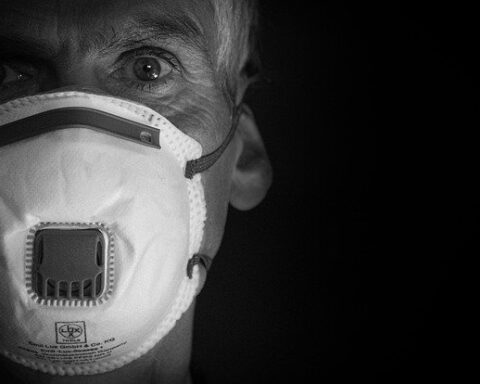Gastric sleeve surgery, also known as sleeve gastrectomy, is a surgical procedure designed to aid in weight loss for individuals struggling with obesity. During the procedure, a significant portion of the stomach is removed, leaving a smaller, sleeve-shaped stomach roughly the size of a banana. This reduction in stomach size restricts the amount of food a person can consume, leading to decreased calorie intake and, consequently, weight loss.
The surgery is typically performed laparoscopically, using small incisions and a camera to guide the surgeon, resulting in reduced recovery time and less scarring compared to traditional open surgery.
Gastric sleeve surgery offers several potential benefits for individuals struggling with obesity and related health issues. Some of the key benefits include:
- Effective Weight Loss: Gastric sleeve surgery can result in significant and sustainable weight loss for many patients. By reducing the size of the stomach, the surgery limits the amount of food that can be consumed, leading to reduced calorie intake and subsequent weight loss.
- Improvement or Resolution of Obesity-Related Health Conditions: Many individuals who undergo gastric sleeve surgery experience improvements or even resolution of obesity-related health conditions such as type 2 diabetes, hypertension, sleep apnea, and high cholesterol. This can lead to reduced medication requirements and better overall health outcomes.
- Enhanced Quality of Life: Weight loss resulting from gastric sleeve surgery often leads to improvements in physical mobility, energy levels, self-esteem, and overall quality of life. Patients may find it easier to engage in physical activity, enjoy social interactions, and pursue activities they were previously unable to participate in due to obesity.
- Reduced Risk of Cardiovascular Disease: Weight loss and improvements in metabolic health following gastric sleeve surgery can lead to a decreased risk of cardiovascular disease, including heart attack, stroke, and other cardiovascular complications.
- Lower Risk of Obesity-Related Cancers: Obesity is associated with an increased risk of certain cancers, including breast, colon, endometrial, and pancreatic cancer. Individuals may reduce their risk of developing these cancers by achieving significant weight loss through gastric sleeve surgery.
- Lifestyle Change Facilitation: Gastric sleeve surgery can catalyze long-term lifestyle changes, including healthier eating habits, increased physical activity, and improved self-care practices. Many patients find it easier to adopt and maintain these changes following surgery, contributing to sustained weight loss and overall well-being.
- Shorter Recovery Time: Gastric sleeve surgery is typically performed laparoscopically, resulting in smaller incisions, less postoperative pain, and a shorter recovery time compared to traditional open surgery.
- Improvement in Mental Health: Weight loss and improvements in physical health following gastric sleeve surgery can have positive effects on mental health, including reduced rates of depression, anxiety, and body image dissatisfaction.
Overall, gastric sleeve surgery or bariatric surgery can be an effective tool for achieving significant weight loss and improving obesity-related health conditions, leading to a better quality of life and reduced risk of chronic diseases.
However, it’s essential for individuals considering this procedure to thoroughly discuss the potential benefits and risks with a qualified healthcare provider and to commit to lifelong lifestyle changes for long-term success. There are several disadvantages and potential risks associated with this surgery:
- Surgery Risks: As with any surgical procedure, gastric sleeve surgery carries risks such as bleeding, infection, blood clots, adverse reactions to anesthesia, and potential complications related to the surgery itself.
- Nutritional Deficiencies: Since a portion of the stomach is removed, the capacity for food intake is reduced. This can lead to decreased consumption of essential nutrients such as vitamins and minerals, potentially causing deficiencies if not properly managed with supplements and dietary changes.
- Dumping Syndrome: Some patients may experience dumping syndrome, where food moves too quickly through the digestive system, leading to symptoms such as nausea, vomiting, diarrhea, sweating, and dizziness after eating high-sugar or high-fat foods.
- Gastroesophageal Reflux Disease (GERD): While gastric sleeve surgery can alleviate symptoms of GERD in some patients, it can worsen symptoms in others or lead to new onset GERD due to changes in stomach anatomy and pressure on the lower esophageal sphincter.
- Stomal Stenosis: In some cases, the opening between the stomach and the small intestine (stoma) can narrow (stenosis), causing difficulties with food passage and potentially requiring further intervention or corrective surgery.
- Weight Regain: Although gastric sleeve surgery can result in significant weight loss initially, some patients may eventually experience weight regain over time, particularly if lifestyle and dietary habits are not adequately addressed post-surgery.
- Psychological Impact: Rapid weight loss and significant changes in body image can have psychological effects, including depression, anxiety, and body image issues. It’s essential for patients to receive ongoing support and counseling to address these concerns.
- Cost and Insurance Coverage: Gastric sleeve surgery can be expensive, and not all insurance plans cover the procedure. Patients should consider the financial implications and potential out-of-pocket costs associated with the surgery and related medical care.
- Long-Term Follow-Up: Patients undergoing gastric sleeve surgery require lifelong monitoring and follow-up care to assess weight loss progress, manage potential complications, and address nutritional deficiencies or other health issues.
Before opting for gastric sleeve surgery, individuals should thoroughly discuss the potential risks, benefits, and alternatives with their healthcare provider to make an informed decision based on their unique circumstances and health goals.








